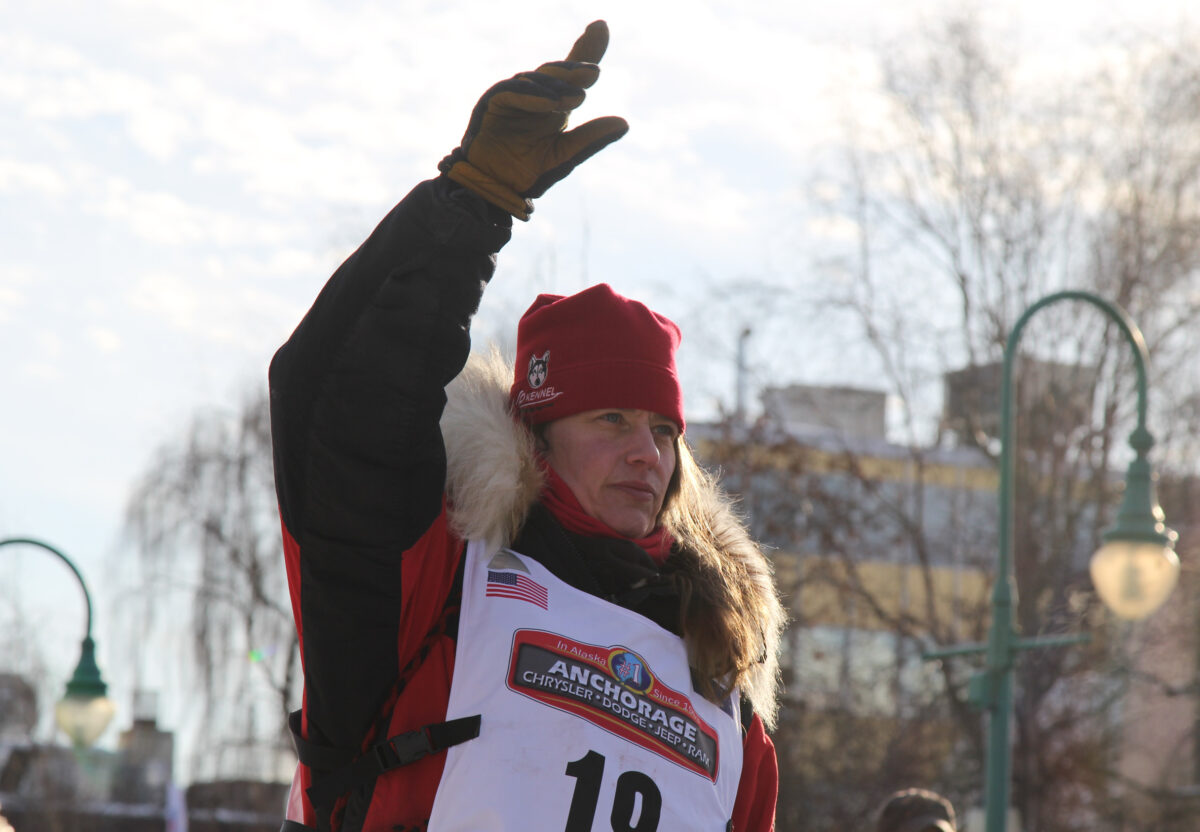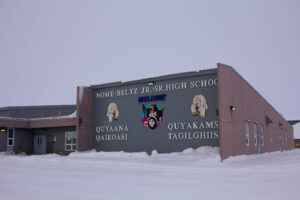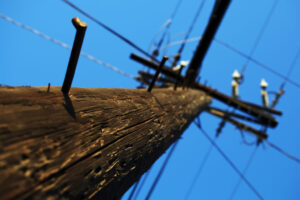Very few sports allow men and women to compete head-to-head. Mushing is one of them. Out of the 47 registered mushers for this year’s Iditarod, 13 of them are women. KNOM shares a bit about the history of female mushers in the Last Great Race.
The first women to cross the Iditarod finish line were Mary Shields and Lolly Medley in 1974. Both rookies, they finished in 23rd and 24th. It wasn’t until 1985, more than a decade later, that the Iditarod would have its first female champion in then-Teller-based Libby Riddles, who was more interested in the win than the history that would come from it.
“Even in my wildest fantasies … I never thought about what would happen if I actually did win it … I wasn’t thinking about that out there.”
– Libby Riddles
Riddles recently spoke to KNOM about her racing career. Though she did not consider the impact of her champion run in that moment, she understands now the importance of her ’85 race.
“Part of me thinks, ‘What’s the big deal?’ But then over so many years of this, I’ve seen where it really is a big deal and I’ve had a lot of young gals write to me and, you know, I can tell my story has made a difference to them.”
– Libby Riddles
The year after Riddles won came another Iditarod legend: Susan Butcher, the first woman with multiple wins, and the first person ever to win the Iditarod 4 out of 5 sequential years. In a 1988 interview with the Academy of Achievement, Butcher spoke about the opposition she faced when she started to place higher and higher in the Iditarod rankings.
“And it was somewhere in there that I saw that in order for me to win the race, I had to be much better than they were. I didn’t have to be just a little bit better than the best male. He could win, being just a little bit better. And they just weren’t gonna let me win, being that much better. So, it was then that I said, ‘Well, I take that challenge, I will become that much better.”
– Susan Butcher
Butcher says that everyone in the sport, including her, had to face growing pains as she developed in mushing and became a premiere athlete in the sport. Although she tragically passed away in 2006 from leukemia, she has earned her place in Iditarod and Alaska history. She is commemorated on the first Saturday of March on Susan Butcher Day, the day that traditionally precedes the start of the Iditarod. Even after her passing, Butcher still leads the teams into the race.
Although Butcher’s win in 1990 was the last time, to date, that a woman claimed first place, female mushers have continued to prove that they have what it takes to survive the harsh conditions of the Alaskan wilderness. DeeDee Jonrowe, whose iconic pink parka was easily identifiable on the trail, has held the record for the fastest time for a female musher to complete the Iditarod since 1998. But perhaps more triumphant is her completion of the Iditarod in 2003, which was 3 weeks after she finished chemotherapy for breast cancer.

In this year’s race, there are notable mushers like Anna Berington and Kristy Berington, twin sisters. Jessie Royer, rookie of the year in 2001, has placed in the top ten of the Iditarod seven times. And fan-favorite Aliy Zirkle, who has raced in the Iditarod since 2001, and the first and only champion of the 1,000-mile Yukon Quest. Zirkle has unfortunately scratched out of this year’s race after sustaining injuries.

Although female mushers have always been able to compete in the Iditarod, their representation in the race has come a long way. And while many of these athletes might tell you that there is nothing groundbreaking about women making it in the Alaskan wilderness, Zirkle emphasized the importance of representing women in the Iditarod during a panel that highlighted female mushers.
“What I have come to realize is that there are people, there are girls today who are told, “You’re a girl, this is what girls do “ … and so when there are women like us, we tend to downplay it. We’re like, ‘You know, gender, whatever.’ But boy, there’s a lot of people where it’s a significant thing.”
– Aliy Zirkle
Women of the trail have not proven that they can “run with the big dogs.” They are the big dogs.
Image at top: Aliy Zirkle at Iditarod’s Ceremonial Start in Anchorage in 2019. Photo taken by KNOM.




